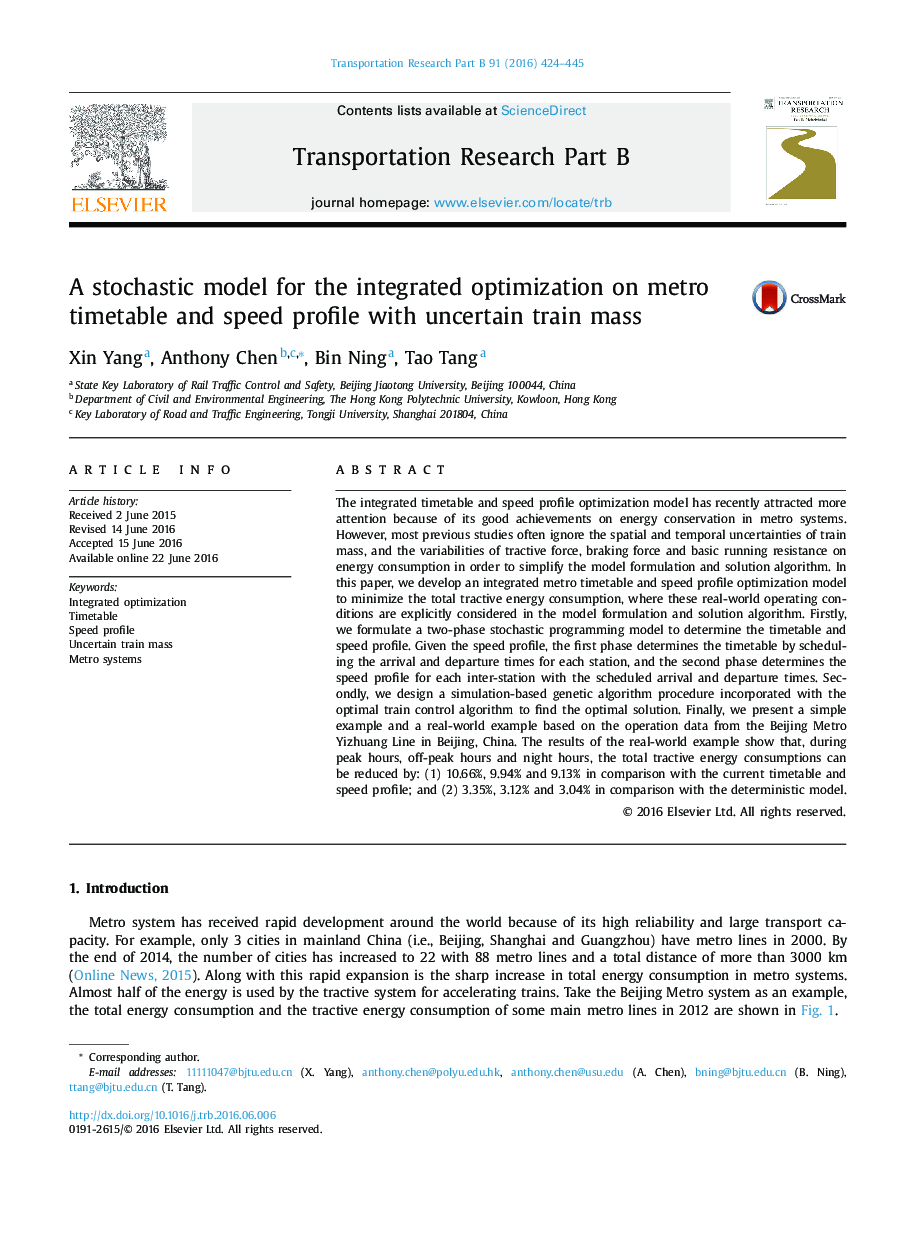| Article ID | Journal | Published Year | Pages | File Type |
|---|---|---|---|---|
| 1131545 | Transportation Research Part B: Methodological | 2016 | 22 Pages |
•Develop a stochastic programming model to determine the timetable and speed profile.•Analyze the convergence property and formulation complexity of the developed model.•Consider the uncertain train mass, variable tractive force, braking force, and running resistance.•Design a simulation-based genetic algorithm incorporated with the optimal control algorithm.•Present numerical examples based on the real-world data from the Beijing Metro Yizhuang Line.
The integrated timetable and speed profile optimization model has recently attracted more attention because of its good achievements on energy conservation in metro systems. However, most previous studies often ignore the spatial and temporal uncertainties of train mass, and the variabilities of tractive force, braking force and basic running resistance on energy consumption in order to simplify the model formulation and solution algorithm. In this paper, we develop an integrated metro timetable and speed profile optimization model to minimize the total tractive energy consumption, where these real-world operating conditions are explicitly considered in the model formulation and solution algorithm. Firstly, we formulate a two-phase stochastic programming model to determine the timetable and speed profile. Given the speed profile, the first phase determines the timetable by scheduling the arrival and departure times for each station, and the second phase determines the speed profile for each inter-station with the scheduled arrival and departure times. Secondly, we design a simulation-based genetic algorithm procedure incorporated with the optimal train control algorithm to find the optimal solution. Finally, we present a simple example and a real-world example based on the operation data from the Beijing Metro Yizhuang Line in Beijing, China. The results of the real-world example show that, during peak hours, off-peak hours and night hours, the total tractive energy consumptions can be reduced by: (1) 10.66%, 9.94% and 9.13% in comparison with the current timetable and speed profile; and (2) 3.35%, 3.12% and 3.04% in comparison with the deterministic model.
